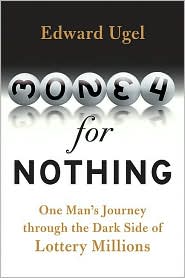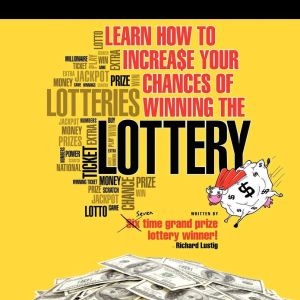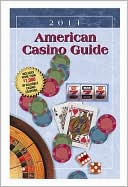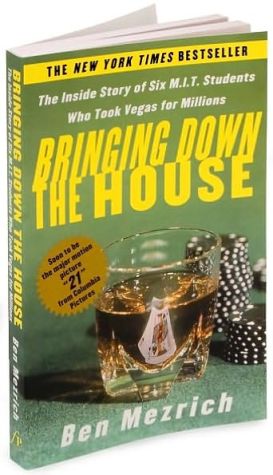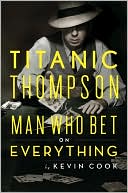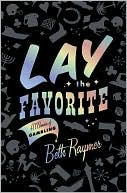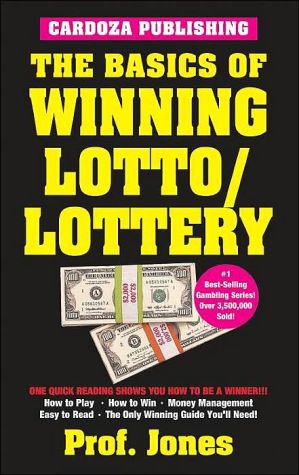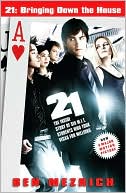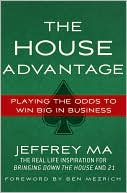Money for Nothing: One Man's Journey through the Dark Side of Lottery Millions
In his wry and funny memoir, Edward Ugel tells the story of America's addiction to the lottery from an astonishing angle.\ \ At age twenty-six, Ed found himself broke, knee-deep in gambling debt, and moving back into his parents' basement. It all changed, however, when he serendipitously landed a job as a salesman for The Firm—a company that offered up-front cash to lottery winners in exchange for their prize money, often paid in agonizingly small annual payments, some lasting up to...
Search in google:
In his wry and funny memoir, Edward Ugel tells the story of America's addiction to the lottery from an astonishing angle.At age twenty-six, Ed found himself broke, knee-deep in gambling debt, and moving back into his parents' basement. It all changed, however, when he serendipitously landed a job as a salesman for The Firm—a company that offered up-front cash to lottery winners in exchange for their prize money, often paid in agonizingly small annual payments, some lasting up to twenty-five years. For the better part of the ensuing decade, Ed spent his time closing deals with lottery winners, making a lucrative and legitimate—if sometimes not-so-nice—living by taking advantage of their weaknesses . . . weaknesses he knew all too well. Ed met hundreds of lottery winners and saw up-close the often hilarious, sometime sad outcome when great wealth is dropped on ordinary people. Once lottery winners realized their "dream-come-true" multimillion jackpots were not all that they were cracked up to be, Ed would knock on their door, offering them the cash they wanted-and often desperately need. This cash sometimes came at a high price, but winners were rarely in a position to walk the other way. As Ed learned, few of them had the financial savvy to keep up with the lottery-winner lifestyle. In fact, some just wanted their old lives back.A charmingly neurotic gambler, Ed traveled deep into the heart of the country where he discovered the American Dream looks a lot like a day at the casino. And Ed knows casinos. In fact, his own taste for gambling gave him a unique insight into lottery winners: he intimately understood their mindset, making it that mucheasier to relate to them. And like lottery winners, Ed struggled to find balance in his own life as his increasing success earned him a bigger and bigger salary. Even as he relished his accomplishments, he grappled with the question: "If you are good at something that is bad for some people, does that make you a bad person?"Ed Ugel takes the readers inside the captivating world of lottery winners and shows us how lotteries and gambling have become deeply inscribed in every aspect of American life shaping our image of success and good fortune. Money for Nothing is a witty, wise, and often outrageously funny account of high expectations and easy money. Details Magazine This funny, eye-opening memoir explores the American mania for gambling and the dark side of hitting the jackpot.
Money for Nothing\ One Man's Journey Through the Dark Side of Lottery Millions \ Chapter One\ Gonzo Goes Fishing\ August 1997: Southeast Florida\ I am watching Tommy roll another joint, one-handed, while driving his new boat straight out of the inlet into the Atlantic Ocean. I'm laughing so hard it's making me even more nervous, happy, sad, stunned. I just made a serious commission off this guy and he's taking me out fishing, too. Forty minutes ago, we were at his bank notarizing the signature pages of his contract. Now, we're off the clock.\ Thank God I left the contracts in the car. There's sea spray everywhere. They would be soaked, and I'd be beside myself—just beside myself.\ Tommy's someone you like right away. Three years ago, he won a handful of millions in the Florida Lottery. Tommy swears he was happier before he won. I know he's telling the truth. That's one of the reasons he trusts me—because I know it's true. Two days ago, he called our office looking for money after seeing our commercial on The Jerry Springer Show. Within seconds I knew. This could be big.\ Tommy's wearing nothing but a pair of cut-off jean shorts. He is tan, his skin leathered from a life on the water. This is not his first time in the sun. I, on the other hand, am fat and pale. A chain smoker, Tommy sounds like a young Wilford Brimley. I like him a lot. I just do. He's funny—and we both love to fish. But I can tell that he can be a mean son of a bitch. If he only knew. . .\ The sun feels like it's thirty feet over my head. I'm burning everywhere. This is not the kind of boat where you golathering yourself up with SPF 45. I imagine Tommy would not be inclined to rub the lotion into my tough-to-reach areas. I will burn like a man. I hate being manly. I want a Diet Coke. All we have is Budweiser.\ I'm sweating. Tommy yells something to me. I hear nothing over the screams of the two huge engines mounted on the back. One engine would definitely be enough for this boat, but we have two . . . lucky us. Typical lottery winner, the nouveau riche of the nouveau riche. They buy two of everything when one will do.\ Tommy looks back and hands me the lit joint. He says something. I can't hear him over the goddamn engines. I'm pretty sure he said something about the money. I laugh as if to infer that I both heard him and agree with whatever he just said. At this point, it's best to just agree.\ I'm in no mood to smoke, but I'm not about to refuse his offer. I take a long, deliberate drag on the joint. I close the back of my mouth so I look like I'm toking away. The smoke gets sucked into the engine exhaust before I inhale it. Tommy doesn't notice. Lesson 101 in sales: If a customer offers you something to drink or eat, you accept. It's just good manners and it puts the other person at ease. It's good for business—any business.\ It's 3:45 in the afternoon and I'm faking a joint with a client. Why? Because he wants to, and I'm here to make him comfortable. Not a typical day at Smith Barney or Goldman Sachs. It is, to be sure, closer to car sales—very expensive cars.\ Tommy is going this fast to (a) test me, (b) scare me, or (c) impress me. He has actually done (d) make me want my nana. I'm too numb and hot and happy about the deal to be truly scared. But deep down, I know I'm in a tight spot. At the very least . . . the very least, I'm not exactly acting like the son my father raised. Pretending to smoke a joint with a lottery winner just after signing a deal with him is not quite the career my dad had in mind for me.\ I think Tommy just said something about his lawyer reading a copy of the docs. Goddamn engine noise. It doesn't matter now. The deal's signed. I nod and smile. All I can think about is holding onto any part of the boat that is bolted down—and not dying. The skin cancer I'm bound to get is a longer-term issue. Falling out of the boat, three miles out to sea with a stoned multimillionaire, is a more pressing concern.\ Tommy has no idea how we make our money. They never do. He thinks we're fishing buddies. I wish we were. I will be sorry to disappoint him—that part always stings. But, in the end, more times than not, these deals are one-night stands. He offered to put me up at his house, for Christ's sake. He didn't even want me to check into a hotel. He can roll a goddamn joint with one hand. I like Tommy. I could use a friend like him in my real life.\ In two weeks, he will threaten to kill me. He will mean it. And I will deserve it.\ What kind of job makes all this possible, necessary even? To see the lump-sum business for what it really is, to understand that it has next to nothing to do with finance and numbers, you have to appreciate the kind of folks that win the lottery and the kind of guys who wait in the weeds for them to surface.\ Tommy's first call to The Firm surfaced late in the evening, when decent folks were already home. I was with Ben at the bar, for a change. We were both still in our work clothes, as we'd come straight from the office—four hours ago. We were still working, in a sense, as our cell phones kept ringing with sales reps from all over the country calling in to give us (Ben, really) updates on the status of their deals. So far that night, over a handful of cocktails, we'd both made money as two deals had been signed, all while we guarded our favorite bar stools.\ Money for Nothing\ One Man's Journey Through the Dark Side of Lottery Millions. Copyright © by Edward Ugel. Reprinted by permission of HarperCollins Publishers, Inc. All rights reserved. Available now wherever books are sold.
Introduction XVGonzo Goes Fishing 1Lottery for Dummies 25Everything You'll Wish You Never Knew About Winning the Lottery 36Go West, My Son 49The Firm 65Can You Hear Me in the Back? 105Sally Stone 114What is the Sound of No Hands Clapping? 154Every Time I Try to Get Out, They Pull Me Back In 166Of All the Gin Joints, in All the Towns, in All the World 182Senior Vice President of My Basement 199Epilogue: The Gamble in Me 211Endnotes 237
\ New York TimesMr. Ugel's roller-coaster ride makes for dizzying, sometimes harrowing reading. Confessional, un-self-protecting and bitterly funny, it exposes the human failings of his customers, his colleagues and himself, in a personal memoir of greed and hope\ \ \ \ \ New York Daily NewsMoney for Nothing is Ugel's outrageous and often very funny account of the years he spent gouging lottery winners for whatever he could take.\ \ \ USA TodayHis tale is a colorfully written account by a self-proclaimed overweight, chain-smoking, Krispy Kreme doughnut-eating, fanatical gambler . . . .You will lick your chops, eager to hear the sordid woes of winners gone broke from spending sprees.\ \ \ \ \ The Wall Street JournalAn added twist to Mr. Ugel's sordid -- and highly engaging -- tale is the fact that he was himself a compulsive gambler. So while he was encouraging lottery winners to sell him their checks at a discount, his commissions were disappearing at the tables in Atlantic City and Las Vegas.\ \ \ \ \ Details MagazineThis funny, eye-opening memoir explores the American mania for gambling and the dark side of hitting the jackpot.\ \ \ \ \ Library JournalUgel is a self-proclaimed gambler. He's also a born salesman. So it was a good fit when he landed a sales job with a firm that pioneered the lottery "lump sum" industry. Basically, his firm stalked and then preyed upon cash-strapped lottery winners (annual payouts to these jackpot winners could be very small). To be fair to the firm, buying out the lottery annuities of these winners did solve their immediate cash problems. But in a nearly unregulated industry, the discounts to the winners were steep-and consequently the profits to the firm were enormous. Ugel's story is a familiar one. He basically just needed a job, landed one to which he was constitutionally suited, and learned to play dirty (because that's how the industry worked). Eventually, he got sacked and repented of his ways-thus the book. Ugel's natural showmanship makes for entertaining reading. He does little to pretty up his misdeeds (heck, they were legal) and offers comical vignettes of his rendezvous and run-ins with prospective clients while delivering a well-deserved scathing indictment of the government-backed lottery system. Given the popularity of legalized gambling, this book should circulate briskly in public library business, collections.\ —Carol J. Elsen\ \ \ \ \ \ Kirkus ReviewsAn industry insider dissects the dire social consequences of America's gaming culture. Ugel worked in a particularly unsavory corner of the lottery business, a private, lump-sum company that offers winners a quick hit of cash if they sign over their annuities. As he points out, these are hardly the only sharks in the gambling ocean. Lotteries date to antiquity, and our founding fathers were all heavily involved in their implementation or promotion. Today, gambling is more pervasive and more acceptable than ever. More than half of all American adults play at least once a year, and teens think gambling for high stakes is perfectly normal. Canny lottery executives regularly introduce new, zippier and more addictive games. PR departments know that citizens like to hear about lotto proceeds going to state education, but the author reminds us that lottery money doesn't increase a state's actual expenditures on schools; it just allows legislatures to appropriate a smaller portion of the state budget to the three Rs. As for actually getting lucky and winning, his text backs up the old saw about folks being happier before they won. The newly rich are pursued by friends, relatives and sharp businesspeople out to take advantage of them. For many, lottery wins lead to lawsuits. One woman's septuagenarian husband filed for divorce as soon as she hit the jackpot, successfully claiming he should get half the money, since she'd used his $20 to buy the ticket. A breezy, funny writer, Ugel made "multiple six figures" during his days in the industry, but most of it is now gone: "It's as if I never had the money in the first place. I'm as jealous as you are." He's also pessimistic, short on suggestions ofhow Americans might challenge the lottery industry. Maybe this eye-opening book will galvanize a movement. By turns amusing and alarming.\ \ \ \ \ Ben Mezrich"For anyone who’s ever dreamed of winning the lottery, this is a terrifying look at what really happens when someone hands you that huge cardboard check. Ugel’s writing style is terrific."\ \ \ \ \ USA Today"His tale is a colorfully written account by a self-proclaimed overweight, chain-smoking, Krispy Kreme doughnut-eating, fanatical gambler....You will lick your chops, eager to hear the sordid woes of winners gone broke from spending sprees."\ \ \ \ \ The Oregonian (Portland)"A jackpot of sleaze and hilarity"\ \ \ \ \ BooklistUgel, a gambler since age 19, tells a sordid tale of gambling addiction, and we all have much to learn from the author’s important perspective on the proliferation of gambling opportunities. Written in an informal, sometimes humorous manner, this book contains excellent information for library patrons.\ \ \ \ \ Wall Street Journal"[A] sordid—and highly engaging—tale"\ \
